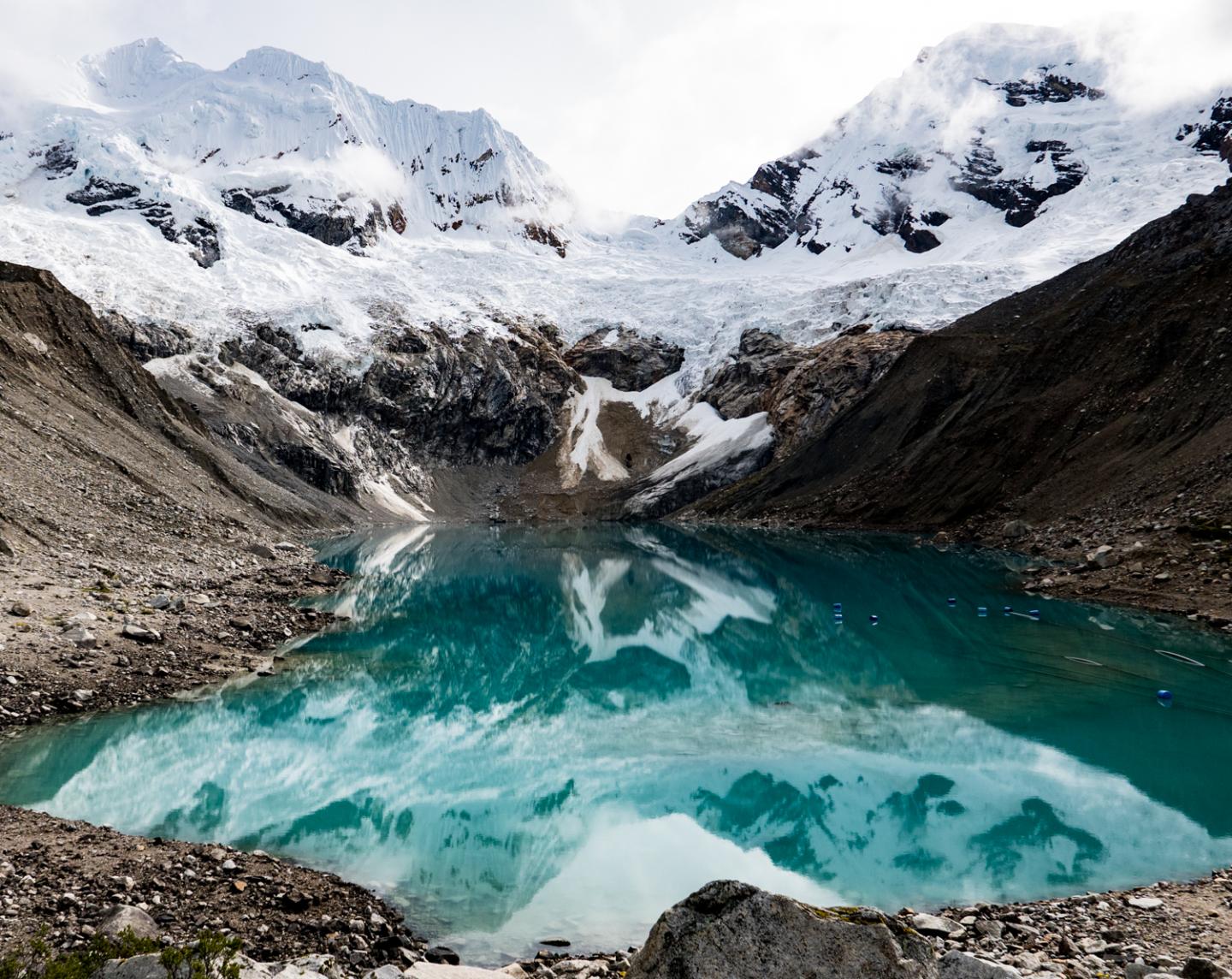Remote communities in the Peruvian Andes depend on the water from melting glaciers and mountain ecosystems to provide them with food and power

Credit: Caroline Clason, University of Plymouth
Remote communities in the Peruvian Andes, as well as communities downstream, depend on the water from melting glaciers and mountain ecosystems to provide them with food and power, and to support industry.
But climate change is increasingly putting that in jeopardy, posing a serious threat to future water resources and having potentially severe implications for the vulnerable populations living in river basins fed by the glaciers.
Now a major research project is looking to establish the precise effects future changes in the glacial system might pose, and how agencies and the communities themselves can work together to mitigate the potential effects of changing water quantity and quality as the glacier retreat.
The project is being led by the University of Plymouth and the Geophysical Institute of Peru, and draws together glaciologists, hydrologists, geographers, environmental and social scientists.
It is being funded in the UK through the Newton Fund, awarded by the Natural Environment Research Council (NERC), while the Peru researchers are supported by CONCYTEC, the National Council of Science, Technology and Technological Innovation.
The key objectives of research include:
- Identifying the dynamic role of glacial melt in the basin water budget, building upon existing glacier and hydrological monitoring networks in the Cordillera Blanca and remote sensing data;
- Developing a conceptual model determining the links between upstream pressures and downstream responses through identification of sources of water, sediment and contaminants from both glacier and non-glacier-fed areas;
- Evaluating the downstream impact of variability in water and sediment supply on contaminant levels and environmental quality;
- Establishing local capacities to mitigate supply challenges through co-design of a Payment for Ecosystem Services (PES) model, designing a response to a long-term trend of decreased water availability and increased (competing) demands on resources.
The research will build on research projects led by the University examining the effects of climate and social change on communities in East Africa and Chile.
Dr Caroline Clason, Lecturer in Physical Geography, is Plymouth’s Principal Investigator on the new project, working alongside Professor of Catchment Science Will Blake and Professor of Geoscience Communication Iain Stewart. The research also involves Plymouth Marine Laboratory and the Westcountry Rivers Trust.
Dr Clason said: “The glaciers of the Andes are crucial for these communities. For example, in the Ancash region of Peru, glacial melt provides up to 67 per cent of the dry season water supply going up to 91 per cent during extreme drought. The rapid retreat of glaciers in the Cordillera Blanca has already had notable impact on that supply, posing challenges for downstream agriculture, industry and hydropower generation not just through a reduction in water but also an increase in sediment and contaminants transported downstream during wet season floods. Fully understanding these challenges, and working with local people and agencies to find ways to overcome them, is essential.”
Dr Sergio Morera, of the Geophysical Institute of Peru, added: “Although the Santa basin is the most studied catchment system in Peru, the outputs of scientific studies emerging in the region have not yet translated into development and improvement of management and adaption policies. Our own studies have shown that the Santa catchment has the highest erosion and sediment transport rates along the Pacific coast, reflecting the susceptible geology and intense mining activity, but to date there has been no policy response. Our strategy will try to promote a real change in policy through a combination of stakeholder engagement, training and knowledge exchange activities. These are integrated with our research programme, permitting research output and impact to develop iteratively in parallel.”
###
Media Contact
Alan Williams
[email protected]
Original Source
https:/




